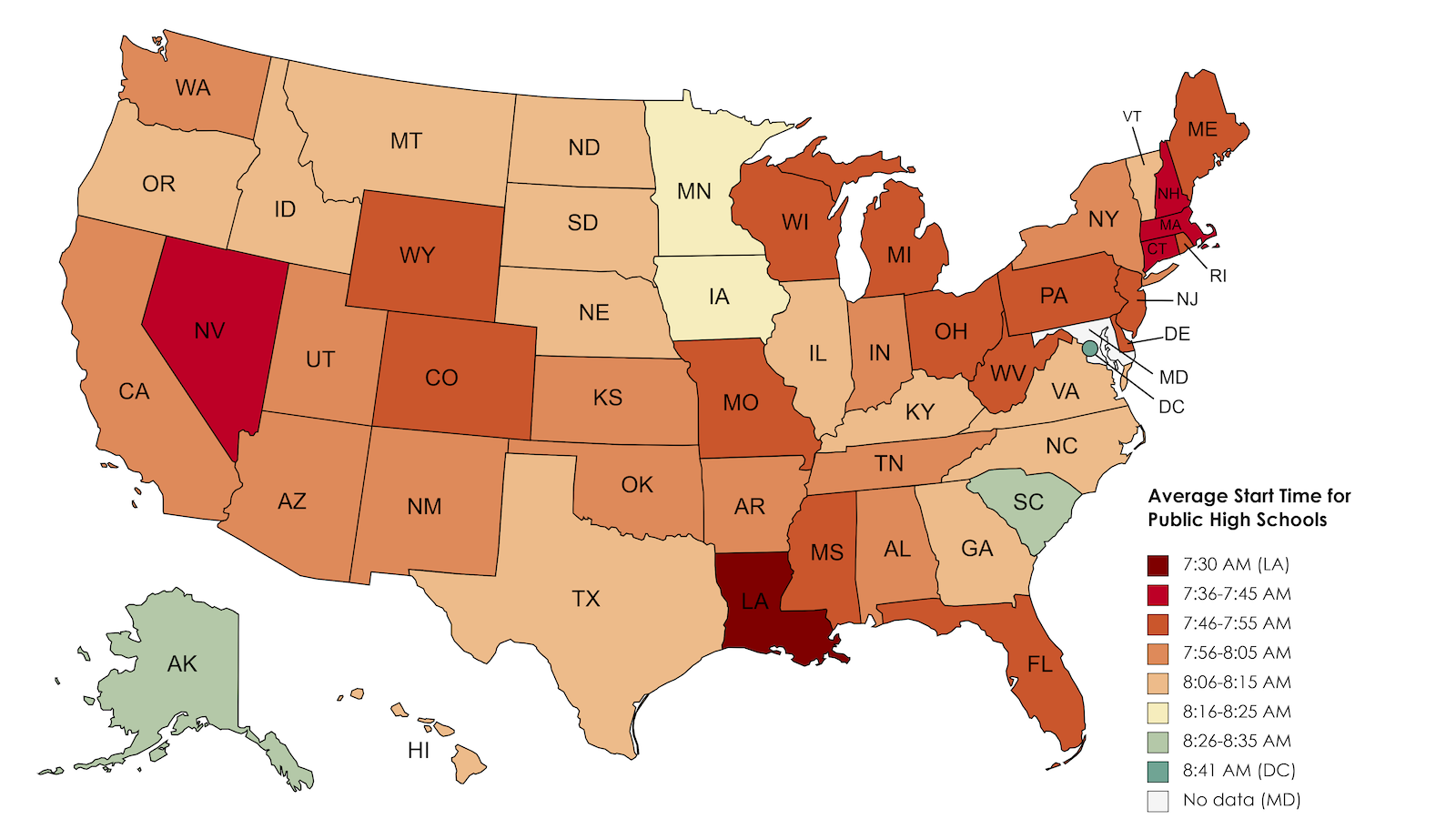Want to sleep longer? Move to Albania
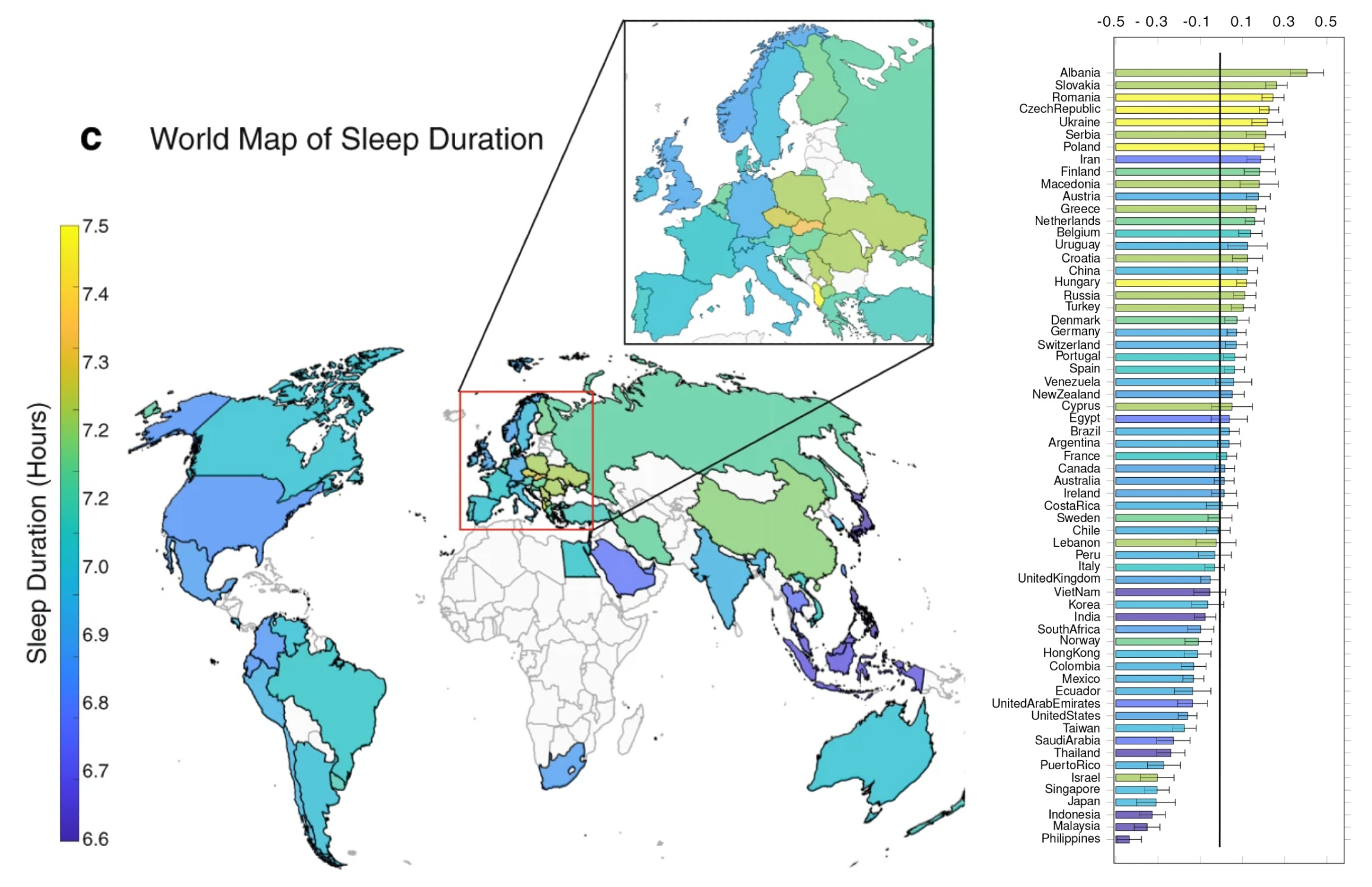
- Just over 7 hours: that’s how long the average person globally sleeps each night, new research shows.
- That average is modulated by various factors, including age, education, commute, gender, and geography.
- The Japanese, and East Asians in general, sleep less than the global average. The top sleepers were Albanians.
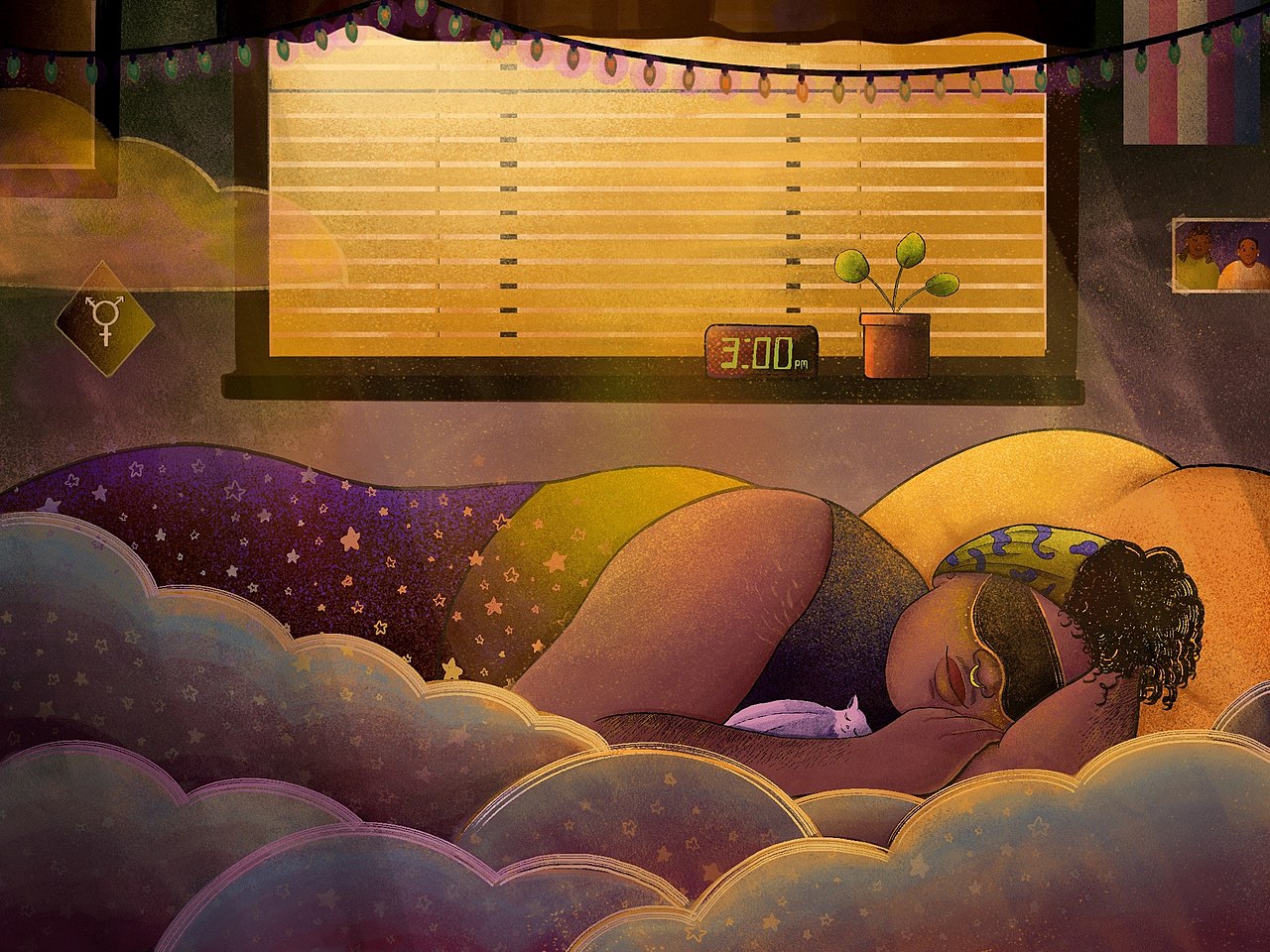
Sleep, says Shakespeare, is “the main course in life’s feast, and the most nourishing.” How long we take each night to get our fill depends on many variables, chief among them age.
A recent article in Nature describes what is probably the largest ever global study on sleep duration, and it shows three distinct phases in sleepers worldwide, corresponding to early, mid, and late adulthood. (For more, see this Big Think article.)
Cultural norms and geographical latitude
But sleep patterns are modulated by other factors as well, including commute duration, education level, and gender. On average, women sleep 7.5 minutes more than men.
Curiously, geography is a factor, too. While the world average sleep duration is just over 7 hours, the average at country level varies by almost an hour. Of the 63 nationalities researched, Albanians were the longest sleepers, averaging 7 hours and 32 minutes per night. That’s significantly more than your average Japanese, who gets by on just 6 hours and 38 minutes of sleep.
So, what explains the difference? According to the researchers, it’s due to cultural norms and geographical latitude.
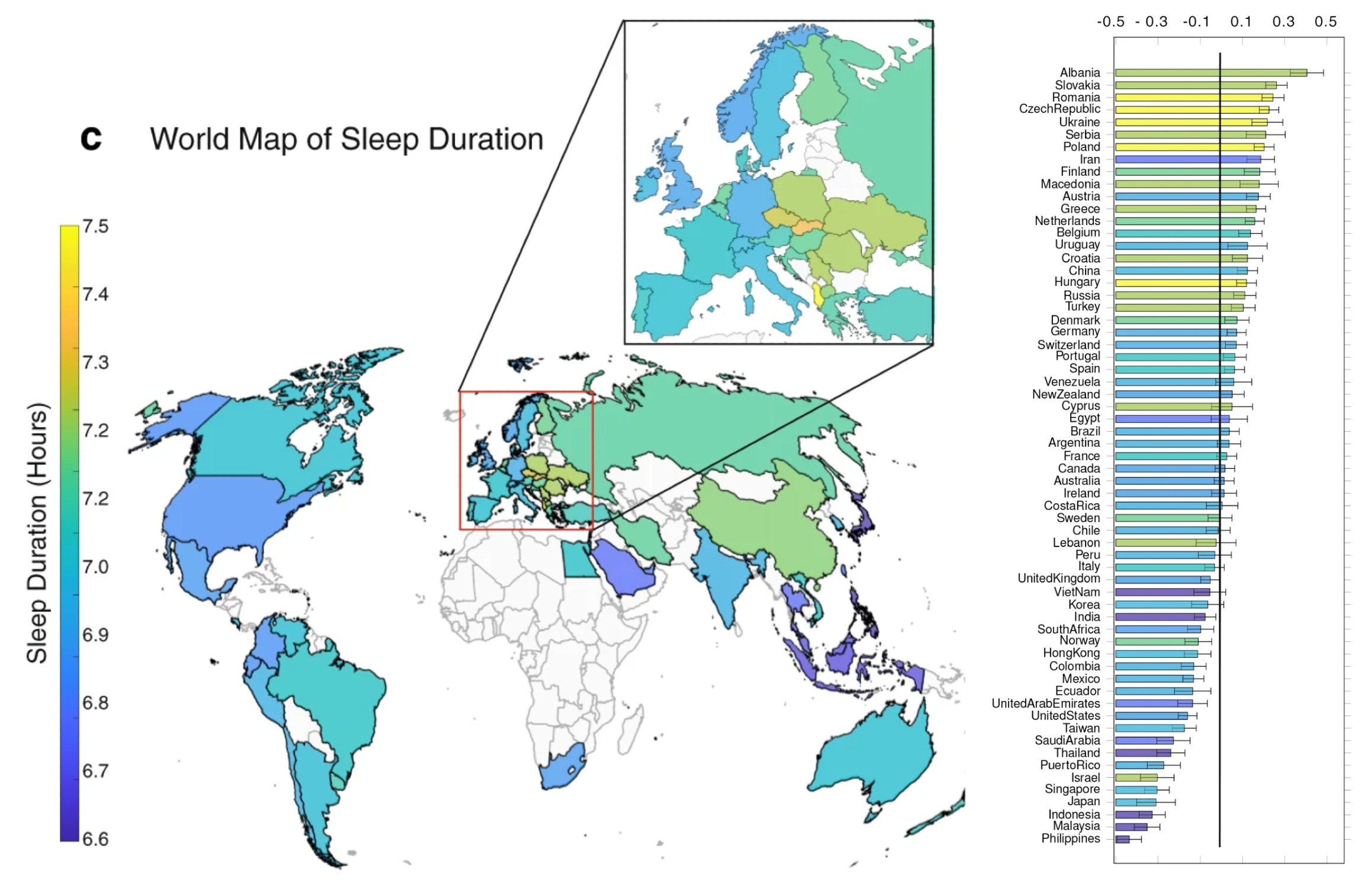
As an example of the former, the article cites workplace napping, which “can be frowned upon in some countries (e.g., the U.S. or France), while considered normal by their neighbors (e.g., Spain or Italy).” Also, “Far East countries, Japan in particular, have been noted to report less sleep. This could be partly explained by the work culture in these countries, Japan being the only nation in the world in which 25% of employed workers work more than 50 hours per week.”
Chile, the go-to place for latitudinal studies
And as an example of the geographic factor, the researchers refer to an earlier study showing a divergence in sleep durations in Chile, a country particularly suited to study latitudinal differences. That study found mean sleep duration on workdays was 7 hours and 55 minutes in the north and 8 hours 20 minutes in the south. In other words: Chileans closer to the equator sleep less than their compatriots elsewhere in the country.
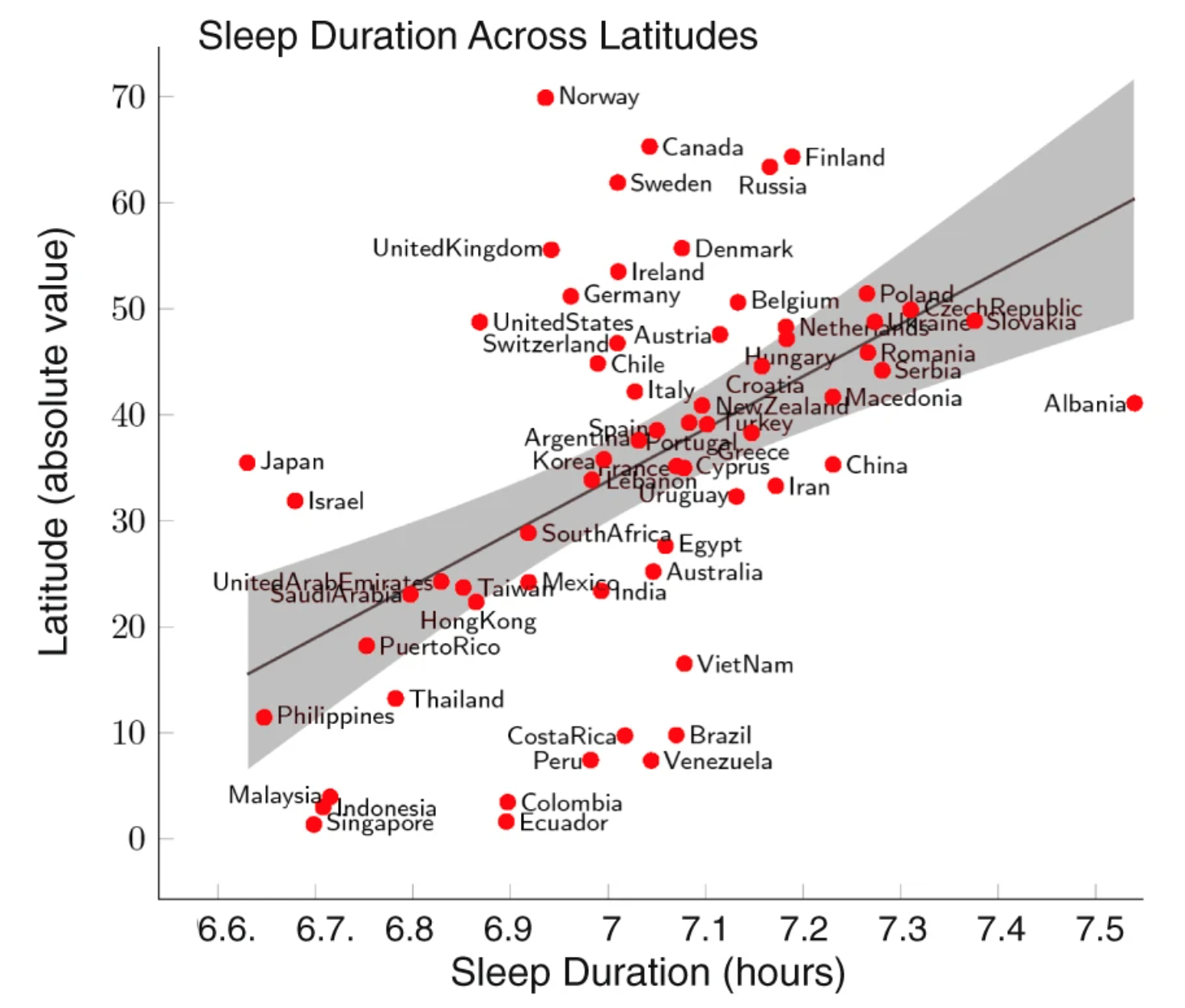
That study yielded slightly different results from the current one, which shows that the average Chilean gets close to the global average amount of sleep. Nevertheless, the Chilean difference aligns with the findings in the global study, which also show “a positive correlation between the country-level average reported sleep duration and their distance to the equator.”
Seven clusters of sleep duration
Both factors combined resulted in seven “global clusters,” within each of which average sleep duration was similar, due to economical, historical, and/or geographical proximity: East and West Europe, East and West Asia, Africa, Latin America, and a “West Offshoot” (i.e., Australia, New Zealand, Canada, and the U.S.)
Fascinating as this is, geography is just one element in the complex mix of factors that predict how long you’ll sleep tonight. So if counting sheep isn’t cutting it for you, first try working less, eating better, and exercising more. And if that doesn’t work, then by all means: Emigrate to Albania.
Strange Maps #1185
Got a strange map? Let me know at [email protected].
Follow Strange Maps on Twitter and Facebook.


